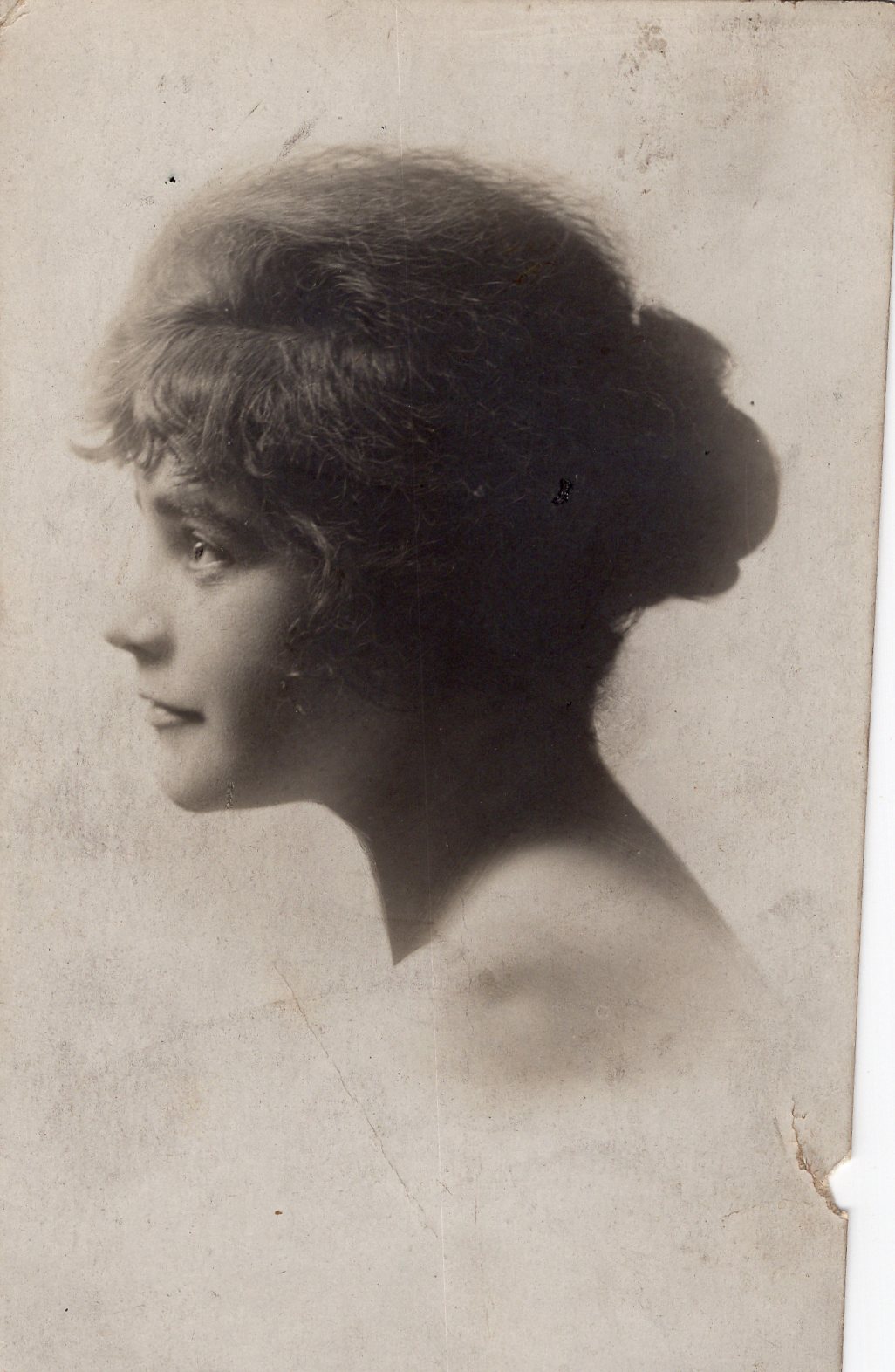After the blog post about my Great-Aunt, Laura Evans-Williams, I was asked if I could do some more posts about that family – and so, I am continuing with another of my Nain’s sisters. She had two sisters and four brothers. Laura was the eldest girl. The middle sister of the brood was Eleanor. She was born on the 17th September 1893 in the family home of Bryn Meirion, Henllan. The Evans family was a strict Calvanistic Methodist one – and her father John, found his beliefs made it awkward to find meaningful work. In the 1891 census, he was listed as ‘Castrator’. Eleanor’s youngest sister (my Nain), ‘Bessie’, would always say her father was involved in ‘improving animal stock’!
The sisters are seen in this wonderful image (l-r, Bessie, Laura, Nell)
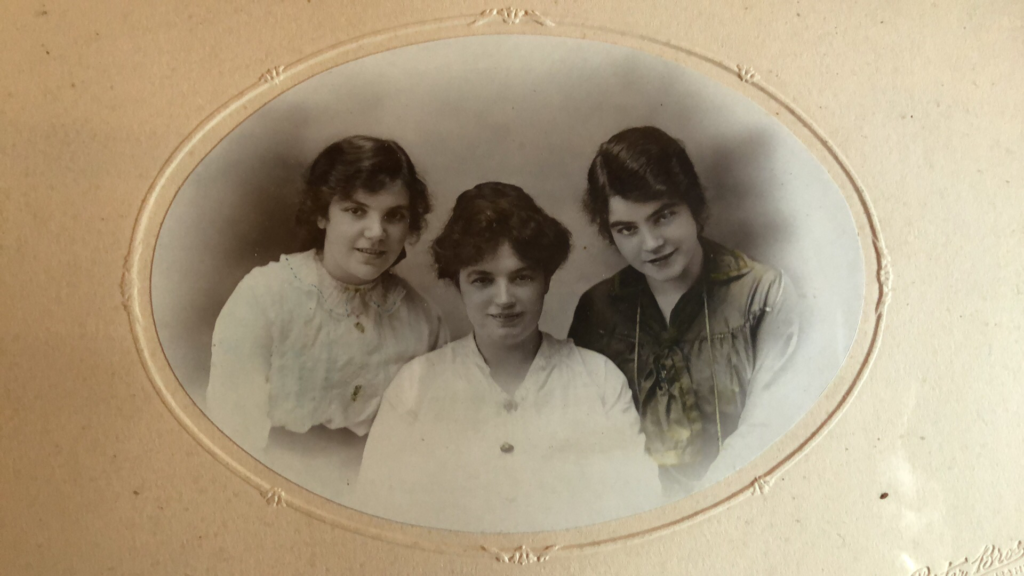
Eleanor – or Nell, as she was known in the family, had a similar path as her sister Laura towards singing. However, as Laura in the early 20th Century attended many competitions and Eisteddfods, that were reported in the Welsh papers, Nell had less of a media profile. She attended concerts and Eisteddfods in the Denbigh area though; sometimes deputising for Laura, but achieving the same audience response for her more famous sister.
Nell achieved a scholarship to the Royal Academy of Music in 1913, following her sister. On Christmas night 1913, she attended a concert in Liverpool, which was ‘constantly encored’. The Denbighshire Free press noting: although we see the mark of good academical training, Miss Eleanor has not in the least degree lost that charm of being natural, and her pure Welsh is untainted.
She managed to achieve the gold medal at the RAM for distinction in opera singing in 1914, plus a prize of 3 guineas worth of books (translated from Baner ac Amserau Cymru). She also met a young bass-baritone, Darrell Fancourt there, a fellow student. Europe, however, was spiralling into war and soon Darrell had joined up, serving in the London Regiment as a lieutenant, his career on hold by the conflict.
Nell moved back to the family home in Henllan, near Denbigh. During the war, like her sister, Nell gave formal concerts to servicemen, including the YMCA in Denbigh on 21/8/15.
As the war moved to its conclusion, Darrell and Nell married in 1917. It was the start of a traumatic year for the Evans family. Laura’s husband , Robert Williams, died in London. Their brother, Stanley fell at Paschendaele in September of that year. Another brother, Hugh George, was to perish at the hands of a sniper in October 1918.
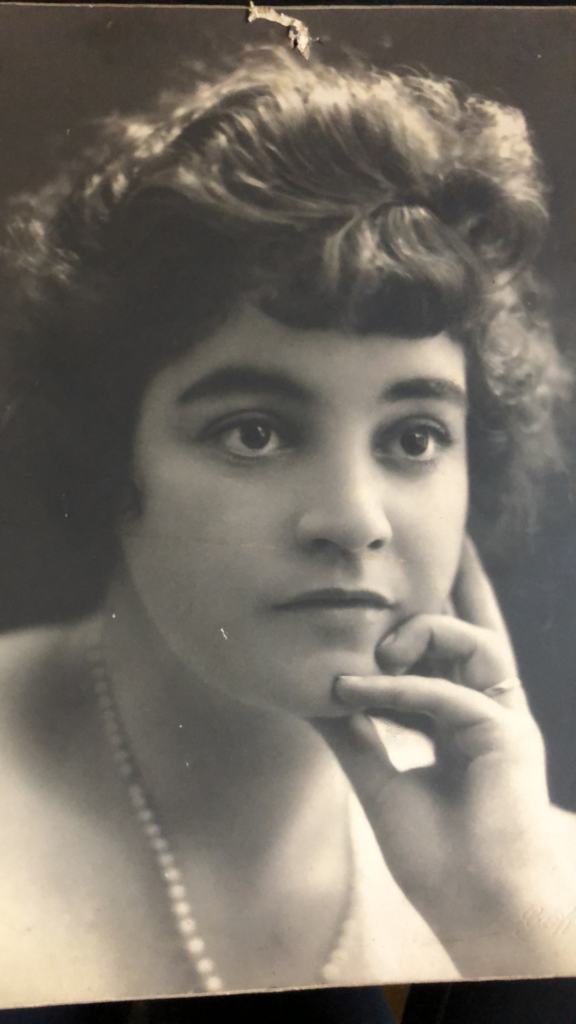
After the war, Nell and Laura were involved in many benefit concerts for the war wounded. In August 1919, Nell replaced Laura at the concert of the National Eisteddfod where she was warmly received. Darrell meanwhile, had joined Laura’s touring party, which toured North Wales giving benefit concerts. At Aberystwyth, their hotel burned down and Darrell lost the equivalent of £5,000 worth of jewellery he had purchased for Nell.
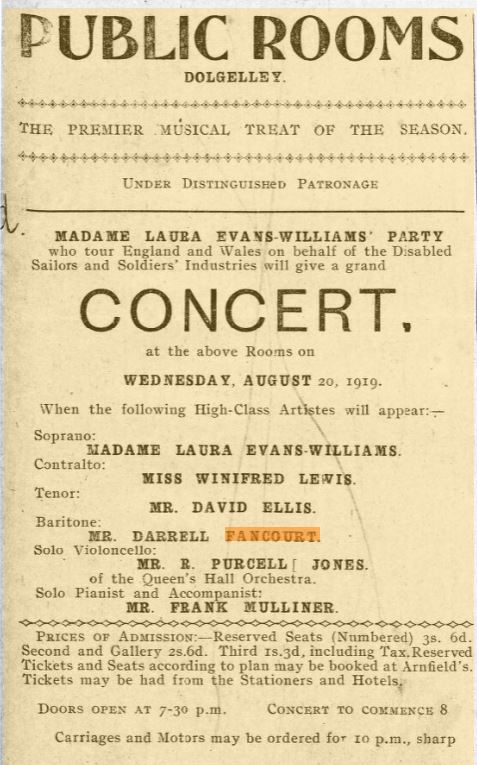
In 1920, Darrell Fancourt was engaged by the world famous D’Oyly Carte company as a principal. Nell joined him, but her singing career was less enlightened. She did achieve some lead roles; Plaintiff in ‘Trial by Jury’, Lady Psyche in ‘Princess Ida’ and understudying Josephine in ‘HMS Pinafore’. It would perhaps have been surprising for both spouses to land lead roles in an established opera company. Certainly the era would have normally meant the husband’s profession would have preference. It would certainly have made the relationship awkward, to say the least, for Nell to have carved a career in a different company with different agendas. It would be quite possible they would have spent most of their lives as ‘ships in the night.’
As it was, Nell lost her lead roles by 1926 and performed in the chorus. In 1937, she left the company, but rejoined the chorus in 1941, until 1945. She had begun to take an interest in backstage work and had directed some amateur productions.
In 1948, the D’Oyly Carte company was inherited by Bridget D’Oyly Carte. A year later, her director of productions, Anna Bethel, resigned. Bridget appointed Nell as stage director. Bethel was the spouse of a leading principal and the move saw the swapping the wife of one principal for the another. It was not a popular move amongst the established cast and bad feeling and resentment festered within the company.
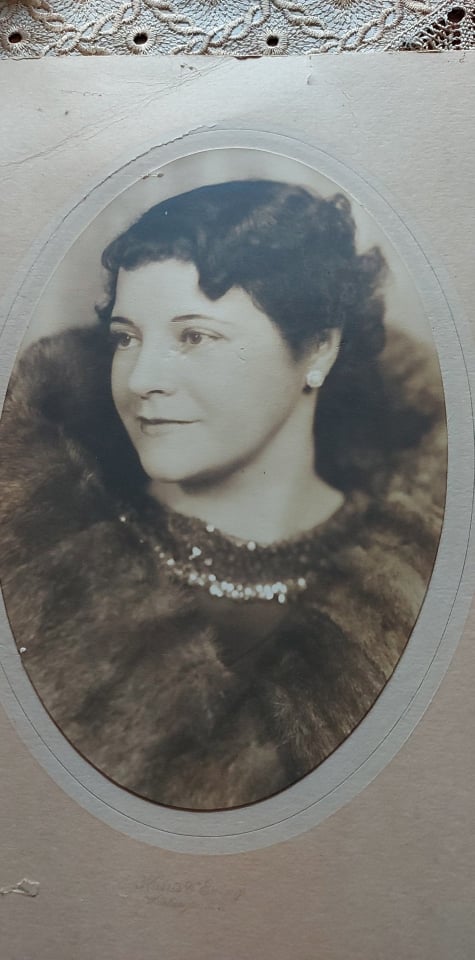
Nell was a strong director, whose productions were not allowed to deviate from the traditional way they had been produced. This appears to be the Company’s viewpoint and Nell certainly was of the opinion that you shouldn’t change something that already works. The perceived nepotism and lack of personal creativity allowed in the productions did not sit well with many of the cast.
It reached a head in 1951, when many left the company for good, waxing lyrically their woes in memoirs. Historical accounts of that era, alluded to tales of bullying by principals and leading ladies acting like royalty. This appeared to be a highly toxic work environment, waiting to explode. Certainly some may have looked on whilst Darrell was allowed to create his own Mikado for 10,000 performances. Others may have felt this opportunity was not afforded to them, although an interview in the Nottingham Journal cites her laying down ‘broad outlines of tradition, leading individuals to develop within those lines.’
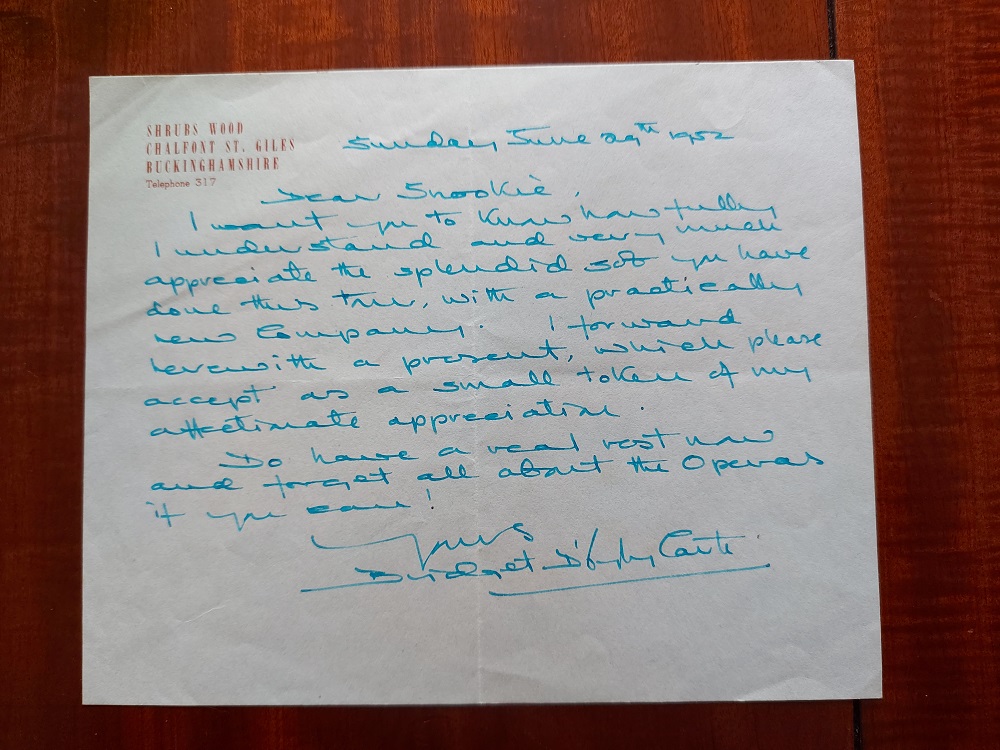
Nell retired from the role in 1953, the same year her husband left the company. Darrell was ill with multiple cancers and did not last the year. Nell still helped in the coaching and selection of new recruits, but eventually moved back to Wales. She directed amateur opera in Colwyn Bay, but again was well known for her strict demeanour.
Nell was known as ‘Snookie’ in the D’Oyly Carte. Nobody can remember why. My parents remember the Fancourt’s flat in Marylebone High Street as being a place of ‘splendour’. Most of the stories that remain are certainly one sided. Sadly Nell did not leave her own memoirs. She retired to Victoria Park in Colwyn Bay, across the road from her sister, Bessie and where her eldest, Laura had moved earlier.
My own memories of ‘Aunty Nell’ was an exceptionally grand woman who held court, but doted on her great nieces and nephews. Perhaps it was due to the fact that she was had no children of her own. Only her brother, Stanley, was childless of the seven children – he fell at Paschendaele.
I remember her always smiling as she sat in her great wicker chair, hands under her chin; elbows on the chair arms as she watched us play. or listened to our progress. She was keen to know of my sister’s singing, who was to carve her own career in Opera as the mezzo-soprano, Deborah Stuart-Roberts. Nell passed away on 20th December 1969.
